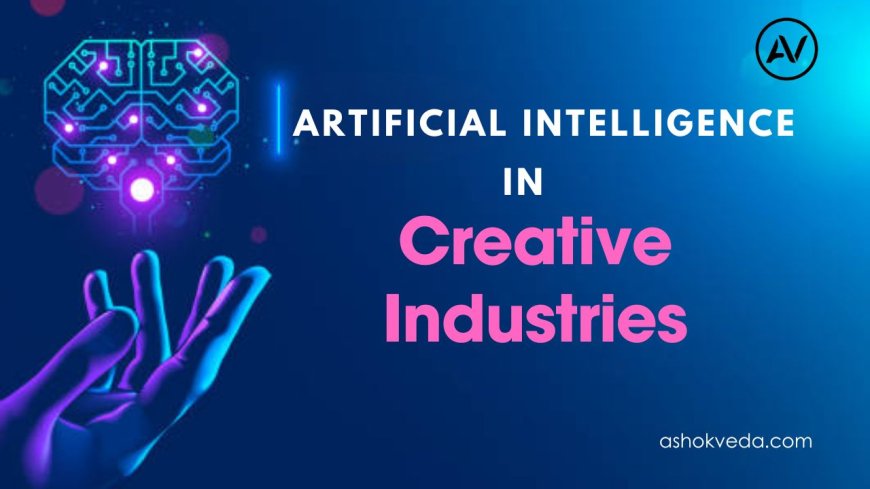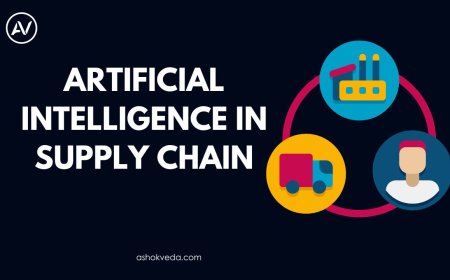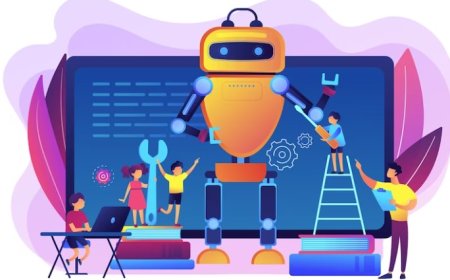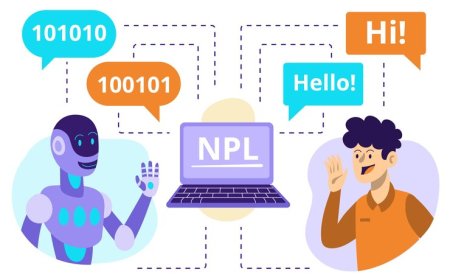Why We Need Artificial Intelligence in the Creative Industries
Artificial intelligence enhances creativity, efficiency, innovation, design, media, art, production, technology, marketing, and problem-solving.

The creative industries enrich our lives with so much innovation and cultural expression, which include publishing, design, film, music, and advertising. Artificial intelligence (AI) has been a major development in various domains recently, encouraging increased innovation and efficiency. When you consider how artificial intelligence helps in the creation of personalized content, the optimization of marketing campaigns, and the improvement of user experiences, it becomes clear why we need artificial intelligence in the creative industries. We can accomplish more and explore a wide range of new creative concepts using AI. Understanding why we need artificial intelligence is important for staying competitive and relevant in the fast-paced world of creative industries, where there is a growing demand for attractive and engaging content.
Why We Need Artificial Intelligence
For many good reasons, artificial intelligence (AI) is becoming an essential part of everyday life. It enables more effective job management and enables fast analysis of huge amounts of data, which improves making choices. AI in healthcare can help doctors by offering accurate diagnoses and specific therapy protocols. AI in education allows students to learn at their own pace by providing them with individualized learning experiences. With smart home appliances that can control the lighting, and temperature, and even place grocery orders, artificial intelligence also enhances our daily lives.
Enhancing Creativity and Innovation
AI helps in the creative industries by encouraging innovation and creativity. Creative professionals can explore new ideas and push limits with the use of artificial intelligence (AI). It supports the development of specific materials, the improvement of user experiences, and the improvement of marketing strategies. AI, for example, can be used in digital marketing to target audiences with customized advertisements by analyzing customer behavior. Artificial intelligence helps create new interactive media in the entertainment industry. Professionals can use AI to enhance productivity and discover new creative opportunities. Staying successful in the constantly evolving creative sector needs an understanding of how AI can promote creativity and innovation.
Examples of AI-generated content in creative industries
-
Visual Art: AI may generate original visual artworks that combine various ideas by analyzing patterns and styles from well-known artists.
-
Music: AI creates creative songs with fresh melodies and harmonies by taking influence from a variety of genres and musicians.
-
Literature: By understanding language structures and storytelling tactics, AI creates poetry, stories, and even complete novels.
-
Advertising: AI analyzes customer behavior to identify audiences with content that is customized for them, resulting in more individualized ad campaigns.
-
Film and Animation: By automating production and design processes, artificial intelligence (AI) helps create new types of interactive media, including virtual reality experiences and animated films.
-
Design: By analyzing consumer preferences and trends, AI creates creative visual and product designs, providing designers with fresh concepts and sources of inspiration.
Improving Efficiency and Productivity
Artificial intelligence specializes in managing hard and repetitive jobs. It can handle repetitive tasks like scheduling, data entry, and email sorting, freeing us our time for more crucial work. By monitoring project progress, sending reminders, and making recommendations for ways to increase efficiency, AI also facilitates the streamlining of workflows and project management. These AI-powered methods allow us to concentrate on more strategic and creative work, which streamlines and increases productivity throughout the workday.
Personalization and Audience Engagement
By filtering through vast amounts of data to figure out what people like and what's popular, artificial intelligence (AI) plays a critical role in understanding audience preferences and trends. Businesses can build experiences and content that are unique to each user by using this data. When artificial intelligence (AI) can promote products, customize marketing messages, or recommend movies and music based on user preferences, for example, it becomes clear why we need artificial intelligence. Businesses can better engage their audience while offering a more personalized experience by recognizing these patterns. This raises consumer happiness while also assisting companies in establishing closer ties with their customers, leading to more entertaining and meaningful encounters.
Increasing Inclusivity and Accessibility
AI tools for creating accessible content for people with disabilities
Text-to-Speech (TTS) Technology: Text-to-Speech (TTS) technology enables those who are blind or visually handicapped to access written content by translating written text into spoken language.
Speech Recognition: AI converts spoken words into text to help people who have trouble speaking or hearing.
Image Recognition: AI recognizes and describes images, enabling people with vision problems to access visual content.
Automated Captioning: AI provides real-time captions for videos to help people with hearing loss.
Natural Language Processing (NLP): AI breaks down complicated texts so people with cognitive impairments can understand them more easily.
Assistive Chatbots: Chatbots driven by artificial intelligence can help and support individuals with a range of disabilities in real-time.
Customizable Interfaces: AI develops user interfaces that are flexible and adapted to each user's demands, improving accessibility for those with physical impairments.
Data-Driven Decision Making
Artificial Intelligence is a great tool to analyze customer behavior and industry trends. It can sort through a large amount of data to figure out what customers are purchasing and new patterns. This helps companies make more informed choices regarding their goods and services. By providing insights into customer preferences, AI also improves strategic planning, enabling the creation of more targeted and successful marketing campaigns. Additionally, AI may help with content generation by making recommendations for ideas and subjects based on what people are interested in and what is popular. Businesses can stay ahead of trends while enhancing audience connections through the use of AI.
Artificial intelligence (AI) is transforming the creative industries by enhancing creativity, efficiency, and personalization. From generating art and music to improving marketing strategies and accessibility, AI offers numerous benefits. It helps businesses understand audience preferences, streamline workflows, and create engaging content. By leveraging AI, professionals can explore new ideas, boost productivity, and connect more effectively with their audience, ensuring they stay relevant and competitive in a rapidly evolving landscape.





































